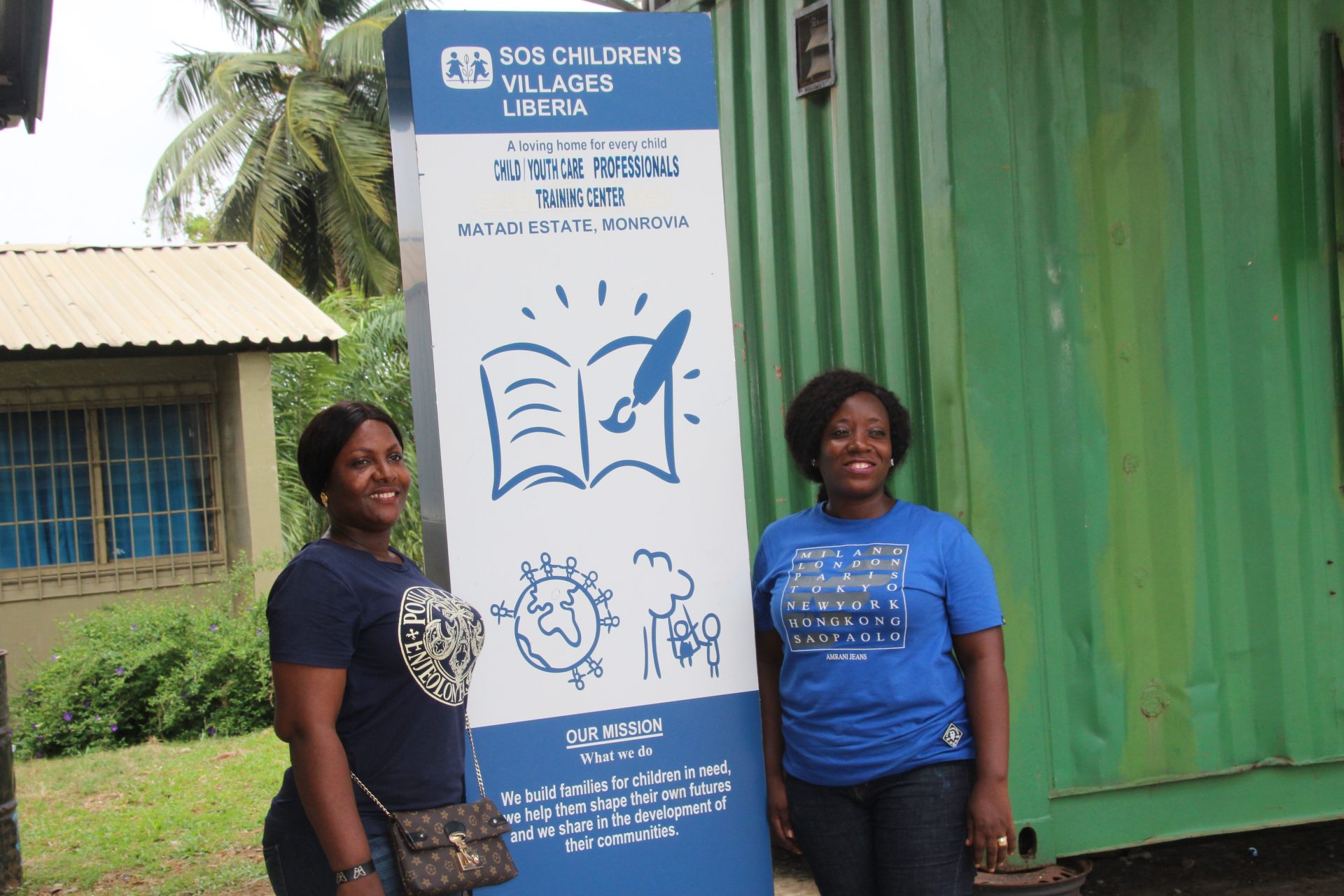
Working beyond just services
“We know more about the young people living in SOS family care, because this is where we grew up. We know their challenges and where they come from so we know how to deal with them, how to talk to them and how to best support them,” says Janyea.
Sometimes an Advisor or a counsellor, sometimes a brother or a sister, SOS youth Advisors such as Janyea Bedell and Vivian Karlue belong to this cadre. Their commitment to their work is based on love, care and responsibility to others with a strong focus on advocating for young people’s rights in society. Both from SOS care themselves, Vivian now works as national youth empowerment coordinator and Janyea as youth Advisor at SOS Children’s Villages Liberia.
“We know more about the young people living in SOS family care, because this is where we grew up. We know their challenges and where they come from so we know how to deal with them, how to talk to them and how to best support them,” says Janyea.
For Janyea and Vivian, the know there has been substantial development in caring for young people since they were living in care.
Today, the youth care team is collaborating with specialised mental health programmes to try to find viable lasting solutions.
“Some of the young people we have supported gave us a tough time because of what they may have experienced before joining SOS family care. For example, we had the case of young people with mental illnesses and whose parents are drug addicts,” says Vivian.
The challenges of reunification and self-reliance:
Another reality today, according to Janyea and Vivian, is the fact the young people should ideally live with their families of origin. However, conditions may not always be ideal to achieve this necessary step.
“One of the biggest challenges for young people living in care in Liberia is the fact that they have reached an age where they should already be reunified with their families within their communities, but that for the longest time there isn’t really anything in place for them to enable this,” says Vivian.
“I remember between 1998 and 1999, when we were still living in care, the world’s approach to reunification was quite different than what it is today. For a long time, biological parents were not allowed to visit their children in care and this caused a major disconnect,” says Janyea. “I, for example, didn’t know my family or where I came from. It took me time to get to know them, to know where to start from or where to go,” she adds.
Whilst a child is in alternative care, SOS Children’s Villages encourages strong links between children and their family of origin, as long as it does not harm the well-being of the child. Placements are reviewed on a regular basis, exploring all care options based on the best interests of the child. This includes supporting and guiding reintegration with their family of origin, if suitable.
Among the 303 children and young people who have exited alternative care in Liberia, 173 have been reunified with their biological families or original families, and are self-reliant.
“Nowadays, we counsel the young people that we have in our care. We have a lot of trainings with them, we guide them, we protect them and – most importantly – we send them to the community at an early age and we encourage families to come and visit,” says Vivian SOS Liberia Youth Office.
Written by: SEBASTIEN TAYLOR, Correspondent- IOR-WCAF, SOS Children’s Villages International